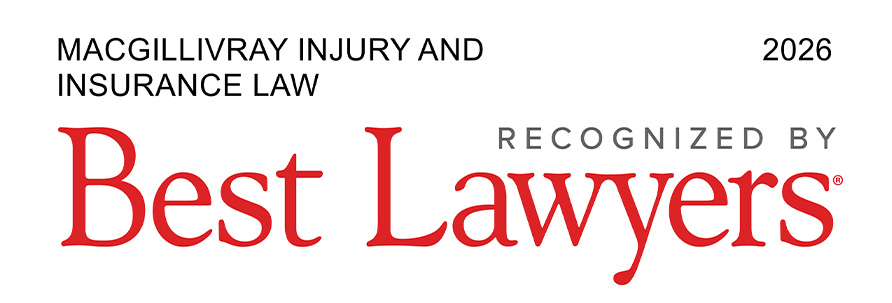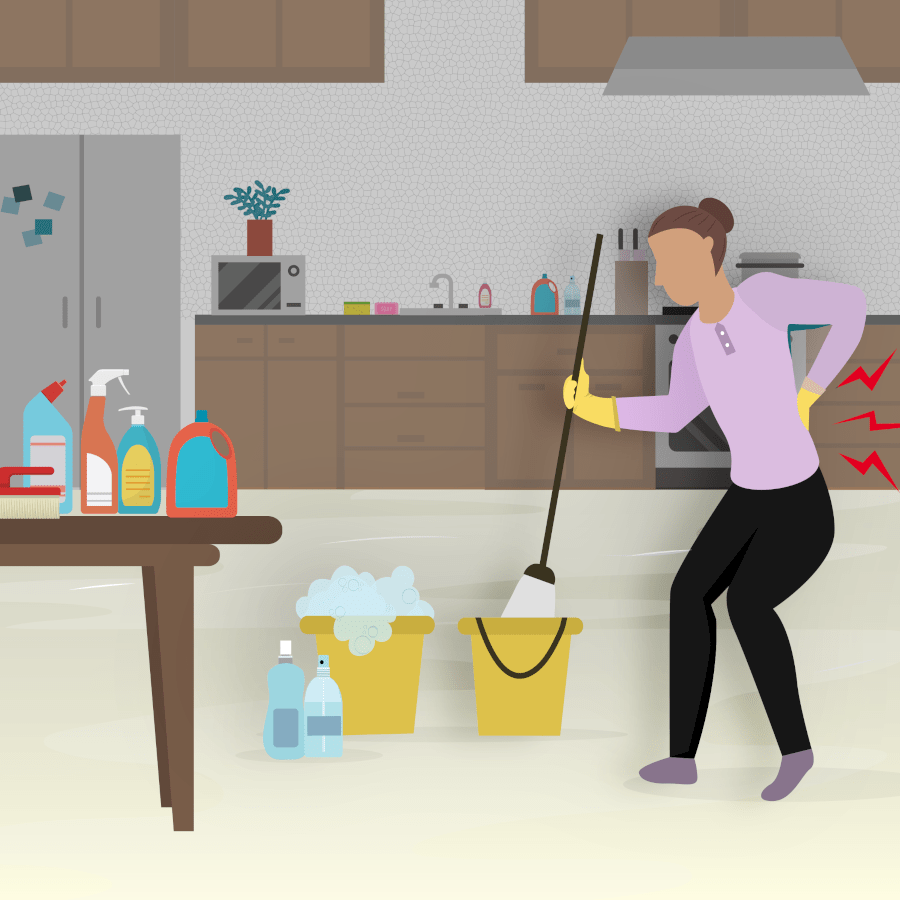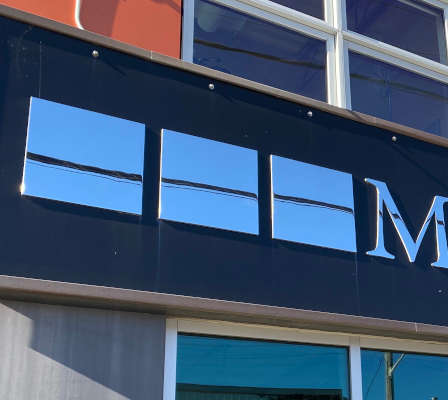



What are Section B benefits?
If you’re injured in a car accident in Prince Edward Island, Section B insurance helps in several ways. It provides up to $50,000 for medical and rehabilitation care, including treatments like physiotherapy and chiropractic care. If you can’t work because of your injuries, it offers up to $250 per week for lost wages for the duration of your disability and $100 per week for housekeeping for up to a year. In the tragic event of a loved one’s death in an accident, it also covers up to $2,500 in funeral expenses and up to $50,000 in death benefits.
| Benefit | Amount |
|---|---|
| Medical and Rehabilitation Expenses | Maximum of $50,000 or 4 years, whichever comes first |
| Loss of Income | 80% of gross income up to a maximum of $250/week |
| Funeral Expenses | Up to $2,500 |
| Death Benefits | Death Benefits Depends on deceased: Head of household = $50,000 Spouse of Head of Household = $25,000 Dependant = $5,000 |
| Principal Unpaid Housekeeping | $100/week for maximum of 52 weeks |
Section B benefits differ from Section A, which is paid by the at-fault driver’s insurance. Section B is paid by your own insurance provider as part of your policy. The only usual exception is if you’re hit as a pedestrian; then, the at-fault driver’s insurer typically covers your no-fault benefits.
Who qualifies for no-fault benefits in Prince Edward Island?
Section B coverage is mandatory in Prince Edward Island and is automatically included in all automobile insurance policies in the province. Section B benefits cover the motor vehicle insurance policyholder, as well as the driver of the insured vehicle, any passengers in the insured vehicle, pedestrians who are hit by the insured vehicle, and any dependants or family members who were occupants of other vehicles involved in the accident. A lawyer can provide advice on coverage issues.
How do I open a Section B claim?
To open a Section B claim after you’ve been in a car accident, you will need to contact your insurance company to fill out a claim form. They will provide you with forms for your family doctor, treatment providers and your employer to complete. The insurance company does not always automatically send these documents to you in the mail, so it is your responsibility to contact them to open a Section B file.
There are deadline requirements to notify your insurer within 30 days of the accident that the accident occurred and filing a proof of claim within 90 days.
Are there time restrictions that apply to claims under Section B?
Yes, time restrictions are crucial for Section B claim, and you must respect the 30 day notice limit and 90 day period for filing the claim form, in addition to the limitation period for filing your action with the court.
It is important to keep track of the dates of important events (e.g., the date of the accident, the date you first communicate with your section B insurer, etc.), and to let your lawyer know of any interactions with your section B insurer, so that they can follow any applicable time restrictions in pursuing your claim.
Can I sue my insurance company for cutting off or denying my Section B benefits?
Yes, you can sue your insurer for wrongfully terminating or denying your Section B benefits. While insurers are legally obliged to provide Section B insurance benefits, some insurers will terminate these benefits in circumstances where a court might not agree it is appropriate to do so. If your insurer denies paying your Section B benefits or wrongfully terminates your weekly loss of income benefits, you may be entitled to start an action against your Section B insurer to recover these amounts.
Can my insurer pay my Section B benefits in a lump sum?
Yes, sometimes an insurer will pay a lump sum to pay out your medical expenses or weekly lost wages payments. However, your insurer is not obligated to do this. If there is a dispute about your entitlement and you sue for lost wages payments, often those cases will result in a lump sum payment. Also, if your insurer is convinced that you are likely disabled and will not return to work, they may make an offer to pay a lump sum to you. This is something you should review with a lawyer before coming to an agreement.
Section B Medical Treatment Expenses
What are Section B Medical Treatment Benefits?
Section B Medical Treatment Benefits in Nova Scotia provide up to $50,000 coverage for medical and rehabilitation expenses resulting from car accident injuries. These benefits encompass three main categories:
- Necessary Services: Including medical, surgical, dental, chiropractic, hospital, professional nursing, and ambulance services.
- Insured Services: As defined under relevant insurance acts, such as hospital services.
- Additional Essential Services: Other services and supplies agreed upon by the insured’s physician and the insurer’s medical advisor as essential for treatment, retraining, or rehabilitation.
Covered expenses can range from medical treatments, prescription medications, outpatient care, and necessary medical equipment, to mileage for treatments and expenses related to retraining for new employment. This also includes paramedical treatments like physiotherapy and massage therapy (see Axa Insurance v. Rolfe, 2004 NBCA 14). Even reasonable costs for food and lodging may be covered, as confirmed in MacKay v. Rovers, 1987 CanLII 130 (NSCA).
However, requests for reimbursement must be reasonable. An insurer might refuse to pay for items unrelated to the accident or considered unnecessary for recovery, as illustrated in Veno v. United General Insurance Corporation, 2008 NBCA 39.
What is the time limit for Section B medical coverage?
The time limit for Section B medical and rehabilitation coverage in Prince Edward Island is specifically defined as “all reasonable expenses incurred within four years of the date of the accident.” This means that any medical and rehabilitation expenses related to the accident must generally be incurred within this four-year window to be eligible for coverage.
However, the courts have shown some flexibility in interpreting this time limit. If the nature and cost of a medical expense were determined within the four-year period, even if the actual treatments or expenses occurred later, they may still be covered under Section B.
What if Section B refuses to pay my medical expenses?
Your insurance company may refuse to pay your Section B medical expense benefits if they believe that you have recovered from your injuries, or if you’ve reached the maximum number of approved treatment sessions. If this happens, you should visit your family doctor to have additional treatment prescribed. It is very important that you have your physician’s full support in your treatment. If the denial continues, a personal injury lawyer can intervene on your behalf.
Section B loss of income benefit: Income to offset lost earnings
Under the Prince Edward Island Standard Automobile Insurance Policy, Section B loss of income benefits, or “weekly indemnity benefits,” are provided if you can’t perform your job’s essential duties after an accident. These benefits are based on 80% of your gross weekly income, allowing you to receive a percentage of your salary each week you’re unable to work. In Prince Edward Island, the maximum you can receive is $250 per week.
Will my Section B loss of income benefits be deducted from my Section A claim?
It is possible that your Section B loss of income benefits are considered when evaluating your Section A claim. Double recovery is a legal concept holding that the injured party should only receive an amount of compensation which would put them into the same position they would have been had the accident not occurred – they cannot be placed in a better position than they would otherwise have been. So, if you received payments for loss of income under Section B, that amount could not also be recovered by you from Section A.
Will my settlement under Section A affect my action against Section B?
No, settling your Section A claim will not affect your Section B benefits. Your Section B insurer has an obligation to fulfill their obligations imposed under the insurance policy, and therefore must continue to pay your loss of income benefits for as long as you qualify.
Will receiving Workers’ Compensation Benefits affect my Section B loss of income benefits?
Yes, under the Prince Edward Island Standard Automobile Insurance Policy, Workers’ Compensation benefits may affect your entitlement to Section B loss of income benefits, as well as the amount of benefits you receive. Consult with a personal injury lawyer for more information about your entitlement.
How long will I receive loss of income benefits?
Your eligibility for loss of income benefits depends on how much time has passed since disability onset. There are two stages to consider:
- First 2 Years – “Own Occupation” Stage: During the first two years following a disability, you’re eligible for loss of income benefits if you can’t return to your previous job – the occupation you had before the accident.
- After 2 Years – “Any Occupation” Stage: After the initial two years, to continue receiving benefits, you must prove that the accident has left you permanently disabled and unable to perform any job for which you’re reasonably suited.
So, the length of time you receive these benefits depends on your ability to work, first in your own occupation, and then in any occupation you might reasonably undertake based on your education, training and experience.
What does it mean to obtain employment for which you are “reasonably suited”?
Being “reasonably suited” for a job means that you must be able to perform work that aligns with your education, training, and experience, and allows you to earn between 60% and 70% of your income before becoming disabled.
After the initial two-year “own occupation” stage, insurers may try to terminate benefits, claiming you can return to a job for which you are reasonably suited. But, if you can’t carry out your job’s essential tasks due to disability, you might still be eligible for benefits.
In Dorgan v. Portage La Prairie Mutual Insurance Co., 2000 PESCTD 60, Mr. Dorgan, a former lobster boat worker, was severely injured in a car accident, resulting in chronic pain in his right leg. The court acknowledged both his physical limitations and his low education level, which together would require extensive retraining for any job he could physically perform. As a result, the court ruled that he was entitled to 104 weeks of loss of income benefits and a continuation of those benefits as long as he remained disabled under the policy. The court found that he was unable to take on any job for which he was reasonably suited given his education, training, or experience.
What if I can work a job for which I’m suited but can’t enjoy personal life due to work strain?
Courts have recognized that being able to perform a job doesn’t mean you’re necessarily fit for that role if it leaves you unable to enjoy your personal life. As determined in cases like Teskey v. Great West Life Assurance Co., 2001 ABQB 1060, working to the point of exhaustion that affects your life outside of work is not considered healthy, and you may not be expected to endure that under Section B benefits.
If you feel that your accident injuries prevent you from returning to your pre-accident work or any suitable employment without harming your personal life, it might be wise to seek legal advice. The value of weekly loss of income benefits could be significant over your lifetime, so understanding your rights and eligibility is crucial.
Is my Section B loss of income benefit taxable?
Section B loss of income benefits are not taxable. They are proceeds of an insurance policy, not income.
What if Section B stops paying my loss of income benefit?
If Section B stops paying your loss of income benefit, you may have legal recourse for breach of contract. Since your insurance policy is a contract between you and your insurer, failing to pay the benefits you’re entitled to might be a violation of that agreement. Generally, if your insurer breaches the contract, you could recover damages.
Moreover, insurance companies must act in good faith, meaning they have to deal honestly and fairly with their insured. So, if you find yourself in this situation, consult a legal professional, as you may have grounds to take action against your insurer.
Section B Loss of Housekeeping Benefit
If you are the principal unpaid housekeeper in your home and become unable to perform household chores due to injuries from a motor vehicle accident, Section B coverage can provide you with a weekly benefit of $100 for up to 52 weeks.

Section B Death Benefits and Funeral Expenses
What are Section B death benefits?
If a person covered under Section B benefits loses their life in a motor vehicle accident, the insurer provides monetary benefits to their household members. Though they could never compensate for the loss of a loved one, these benefits help to offset the monetary losses of the household due to the death of one of its members.
What death benefits are covered by Section B?
Section B provides a lump sum payment to the head of the household, spouse, and dependents if an insured person is killed in a car accident. This payment is distinct from funeral expenses and is meant to provide financial compensation for the loss.
To receive the benefit, the death must have occurred within 180 days of the accident, or within 104 weeks of the accident if the deceased was continuously disabled from the date of the accident during that period.
A head of the household is the highest income earning spouse in the 12 months preceding the accident. The spouse of the head of the household is the spouse with lesser income in the 12 months pre-accident. A dependant is either (1) a person under 18 residing in the household or dependent on the head of household, (2) a person 18 or over who is dependent on the head of household for financial support due to “mental or physical infirmity”, (3) a person 18 or over who is dependent on the head of household for financial support due to full-time attendance at school, or (4) a parent or relative of the head of household or spouse of the head of household who resides in the household and is dependent on the head of household for financial support.
The policy sets out the following amounts for lump sum payments for the loss of the following household members:
- Head of household $50,000
- Spouse or common law partner of head of household $25,000
- Dependant $5,000
What funeral expenses are covered by Section B?
If you have lost a loved one in an accident, you are entitled to a benefit that will assist you in covering their funeral expenses. Section B in Prince Edward Island will cover up to $2,500 in funeral expenses for the deceased insured.
Book a free consultation
We’ve helped thousands of accident victims secure fair compensation and Section B benefits for their injuries. We serve people across PEI from our offices in New Glasgow and Moncton. If you cannot travel to meet us in person, we travel to meet with seriously injured people across the Island. We also meet by phone and virtually.
Rather than bill an hourly rate, our law firm works on a contingency fee basis, which means that our fees are deducted as a percentage of the winning award or settlement. You won’t pay anything until your claim is resolved. Contact us today to learn more.
Have questions for our team?
Frequently Asked Questions
What Our Clients Say...
Request a
Free Consultation
If you would like to learn your legal options at no obligation, contact us today to set up a free consultation.





